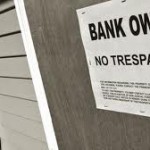MAAPL: 11th Hour Provision Sells Out Victims of Illegal Foreclosure
Last-minute addition to ‘compromise bill’ bars homeowners from reclaiming homes illegally-seized and sold to investors or other third parties.
BEACON HILL – An 11th hour addition to the so-called “compromise” Act to Prevent Unlawful and Unnecessary Foreclosures sells out victims of certain illegal foreclosures, housing advocates say – eliminating rights victims may have to reclaim their unlawfully-seized homes. The last-minute language, inserted by the conference committee charged with hammering out differences between House and Senate versions of the foreclosure abatement bill, encourages lenders to dump questionable and illegal foreclosures on investors, who, in-turn, are granted broad immunity from legal action. And in an act many are calling unethical, the Massachusetts House suspended its rules to pass the new bill immediately and without debate – offering members no time to review or object to blatantly anti-consumer measure. The bill’s summary included no mention of the new language.
“That the conference committee would inject such blatantly anti-homeowner language at the eleventh hour and without debate is absolutely unconscionable,” said Martha Assefa of Worcester Anti-Foreclosure Team, an affiliate of the Massachusetts Alliance Against Predatory Lending (MAAPL). “They’ve taken a bill designed to keep families in their homes and stabilize the housing market and turned it into yet another giveaway to the banks and foreclosure mills.”
Current law states that a lender or lender’s agent must hold both the mortgage and promissory note to execute a proper foreclosure. As written, the new language allows lenders to file a simple affidavit asserting all paperwork is in order. No actual proof is required; lenders can simply claim their records validate the order – even those under investigation or being sued for previous robo-signing of fraudulent foreclosures. In short, a predatory lender would be able to seize and sell a family’s home, with no evidence outside of their own assertions – though the foreclosure may be found to be blatantly illegal after the fact. As many as one in three Massachusetts foreclosures could be affected by the provision.
In addition to weakened oversight of predatory lenders, the new language proactively grants investors immunity for their role in the trafficking of illegally-foreclosed homes. Now barred from suing the purchasers of these illegal foreclosures, victims would have no way to reclaim their property once it is sold to a third party.
“This provision gives predatory lenders carte blanche to dump illegal and fraudulent foreclosures on investors as quickly as possible,” said MAAPL’s Grace Ross. “The lenders have stated publicly that they sign legal documents without review, have been sued by top law enforcement agencies nationwide, and will now be able to file a fraudulent document and investors are immune. Homeowners in these cases will have no recourse to reclaim their homes.”
“Plain and simple, this irresponsible act sells out Massachusetts homeowners to give a sweetheart deal to big banks and housing speculators,” said Steve Meacham of MAAPL affiliate City Life/Vida Urbana. “We call on the State Senate and Governor to stand up for their constituents and immediately strike this ill-conceived language from the bill.”
The relevant excerpt from the amended Act to Prevent Unlawful and Unnecessary Foreclosures follows.
308 Prior to publishing a notice of a foreclosure sale, as required by section 14, the creditor, or if the
309 creditor is not a natural person, an officer or duly authorized agent of the creditor, shall certify
310 compliance with this subsection in an affidavit based upon a review of the creditor’s business
311 records. The creditor, or an officer or duly authorized agent of the creditor, shall record this
312 affidavit with the registry of deeds for the county or district where the land lies. The affidavit
313 certifying compliance with this subsection shall be conclusive evidence in favor of an arm’s-
314 length third party purchaser for value, at or subsequent to the resulting foreclosure sale, that the
315 creditor has fully complied with this section and the mortgagee is entitled to proceed with
316 foreclosure of the subject mortgage under the power of sale contained in the mortgage and any 1
317 or more of the foreclosure procedures authorized in this chapter; provided that, the arm’s-length
318 third party purchaser for value relying on such affidavit shall not be liable for any failure of the
319 foreclosing party to comply and title to the real property thereby acquired shall not be set aside
320 on account of such failure. The filing of such affidavit shall not relieve the affiant, or other
321 person on whose behalf the affidavit is executed, from liability for failure to comply with this
322 section, including by reason of any statement in the affidavit. For purposes of this subsection, the
323 term “arm’s-length, third party purchaser for value” shall include such purchaser’s heirs,
324 successors and assigns.
—–
Thursday, July 26, 2012
Contacts:
Grace C. Ross, 617-291-5591, maaplinfo@yahoo.com
Jason A. Stephany, 617-286-4430, jason@massuniting.org

